Feeding a Cushings Horse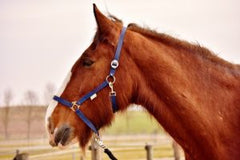
Since a Cushing horse is predisposed to laminitis it is very important to limit his NSC (non-structural carbohydrates) to 10-20% of his total diet. Hay and other fibrous feedstuffs should make up the majority of the horse's diet. The typical horse eats between 1% to 2% of his body weight in forage. So, the average 1,000-pound horse should be fed 15 to 20 pounds of hay per day. If your horse needs more energy to maintain a good body condition you should feed high-fat feeds or beet pulp. Avoid grains and feeds with molasses, which are high in NSC.
Choosing the Best Hay for Your Cushings Horse
When considering hay for your horse, it is important to recognize that some hays may contain high levels of NSC, depending on the species of grass and when and how it was harvested. In general, young plants are higher in sugar, whereas mid-bloom to mature grasses tend to be lower in sugar. Very mature plants typically have large amounts of indigestible fiber which can be hard for older horses with dentition problems to chew. Grass hays average between 7 and 18% NSC. Warm-season grasses, such as teff hay or Bermuda grass, tend to be lower in NSC. While cool-season grasses, such as orchard grass or timothy, are typically higher in NSC. Alfalfa averages 10-15% NSC, and oat hay is very high, averaging 22%. Alfalfa can be a good option for a horse with Cushings if they are a hard time holding their weight because it is more calorie-dense than grass hay. However, if your horse with Cushings is on the heavier side, it is best to steer away from alfalfa hay because of the excess protein can be converted into sugar in the liver.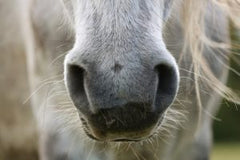
If your Horse Needs More Calories than Just Hay
Some Cushings horses are more prone to being overweight, while others have a hard time holding a good body condition. If more calories are needed to maintain body condition, add feeds that are high in fat, such as flaxseed oil or extruded soybeans. Fat is very energy-dense while providing little easily digestible starch which raises insulin levels in a Cushings horse.Providing Supplements to Optimize Immune Function
Cushings horses have suppressed immune systems and therefore are prone to reoccurring infections. So, it is very important to supplement them with a complete vitamin-mineral supplement that provides them with antioxidants. Antioxidants, such as selenium, vitamins E, C and A help combat attacks on the body. Feeding a supplement like Horse Guard, which is only fed at 2 ounces a day provides the body the needed vitamins and minerals while adding very little to the overall NSC levels of the diet. For the horse with Cushings that has a hard time maintaining weight consider supplementing with Super Weight Gain. Super Weight Gain contains a full dose of Horse Guard to help combat disease, a great prebiotic and probiotic package that helps your horse to get more out of his feed, and the base of cool energy from extruded soybeans to provide your horse energy from protein and fat. Supplementing with 100% flaxseed oil, such as FLOW, can also help your Cushings horse by reducing the insulin spikes in the bloodstream. By lowering these spikes, it helps reduce the chances of laminitis developing. Flaxseed oil also helps to reduce unwanted inflammation.

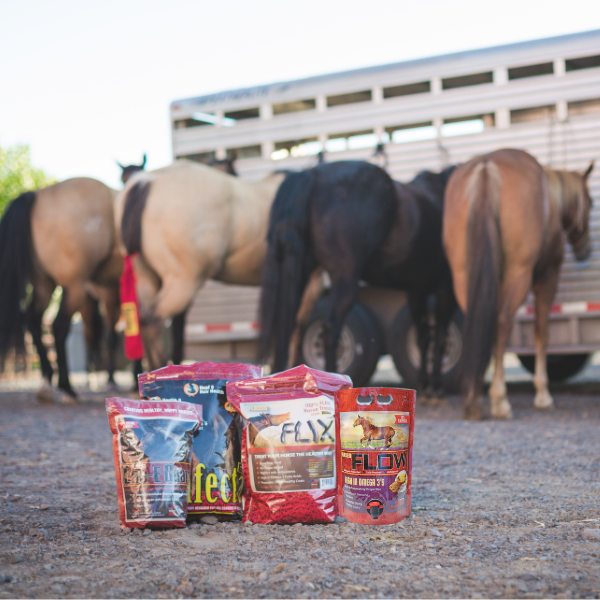
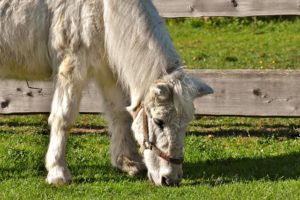

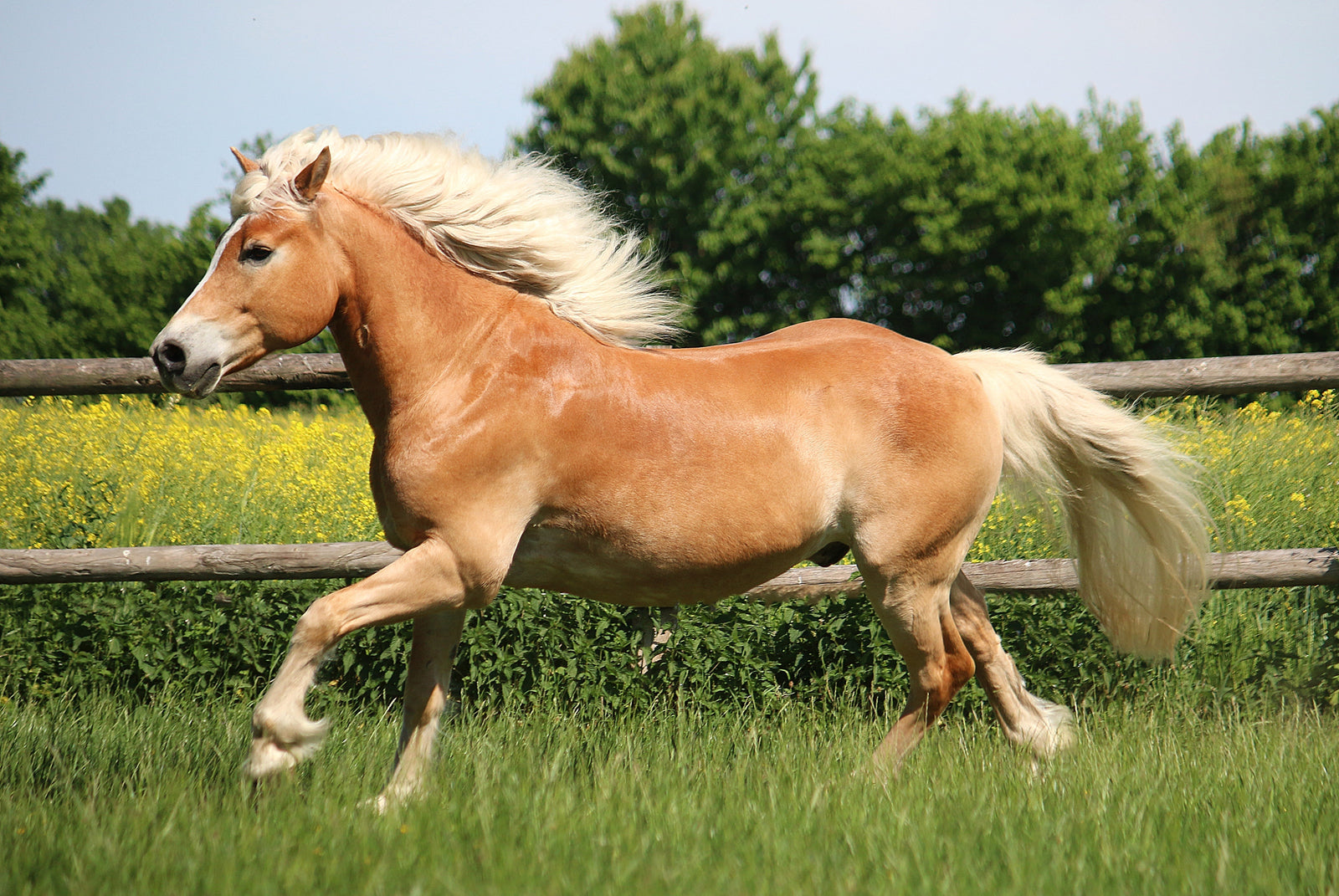
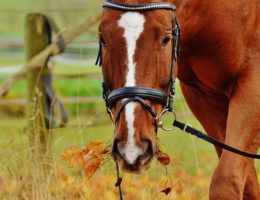
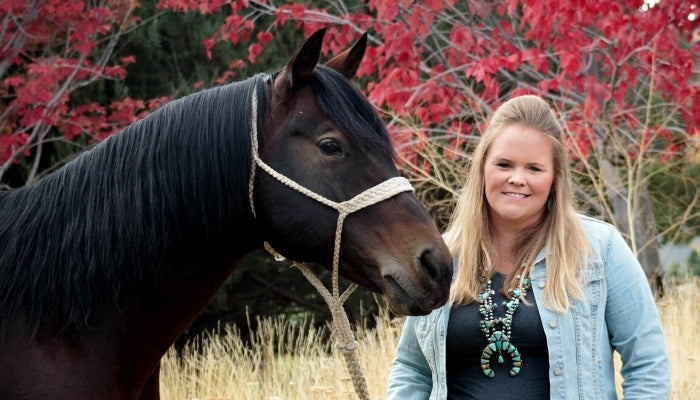
Margie Miller
March 31, 2025
My Cushing’s horse has lost weight and I started her on teff hay because it is low in sugar I read that it is also low in calories. Should I go back to orchard grass? I am giving her Super Weight Gain and flax seed oil with the teff hay. I also have (Purina) senior feed but have held off giving it because it might have too much sugar. Or, because she is underweight, should I include it?
———
Horse Guard replied:
Thank you for the question. I would consider switching your cushings horse to alfalfa. Alfalfa is higher in calories while it is lower in starch and sugars than grass hay. In addition, I would consider adding beet pulp instead of Purina Senior. Purina Senior has a higher NSC with 12% starch and 7% sugar.
Let me know if I can answer any more questions.
Kelsey Johnson Nonella, Ph.D., PAS
Equine Nutritionist, Horse Guard, Inc.<http://www.horseguard.com/>
3848 NW 91st St. Redmond, OR 97756
Facebook<https://www.facebook.com/HorseGuard/> | Instagram<https://www.instagram.com/horse_guard/> | You Tube<https://www.youtube.com/channel/UCQMpOMX6hR2uv1w3IParGQw> | P: 800.553.4246 | F: 866.304.0944
[Horse Guard SMALL] Since 1978 we have dedicated our efforts to providing the highest quality nutrition products for horses. Our success is healthy happy horses and horse owners.